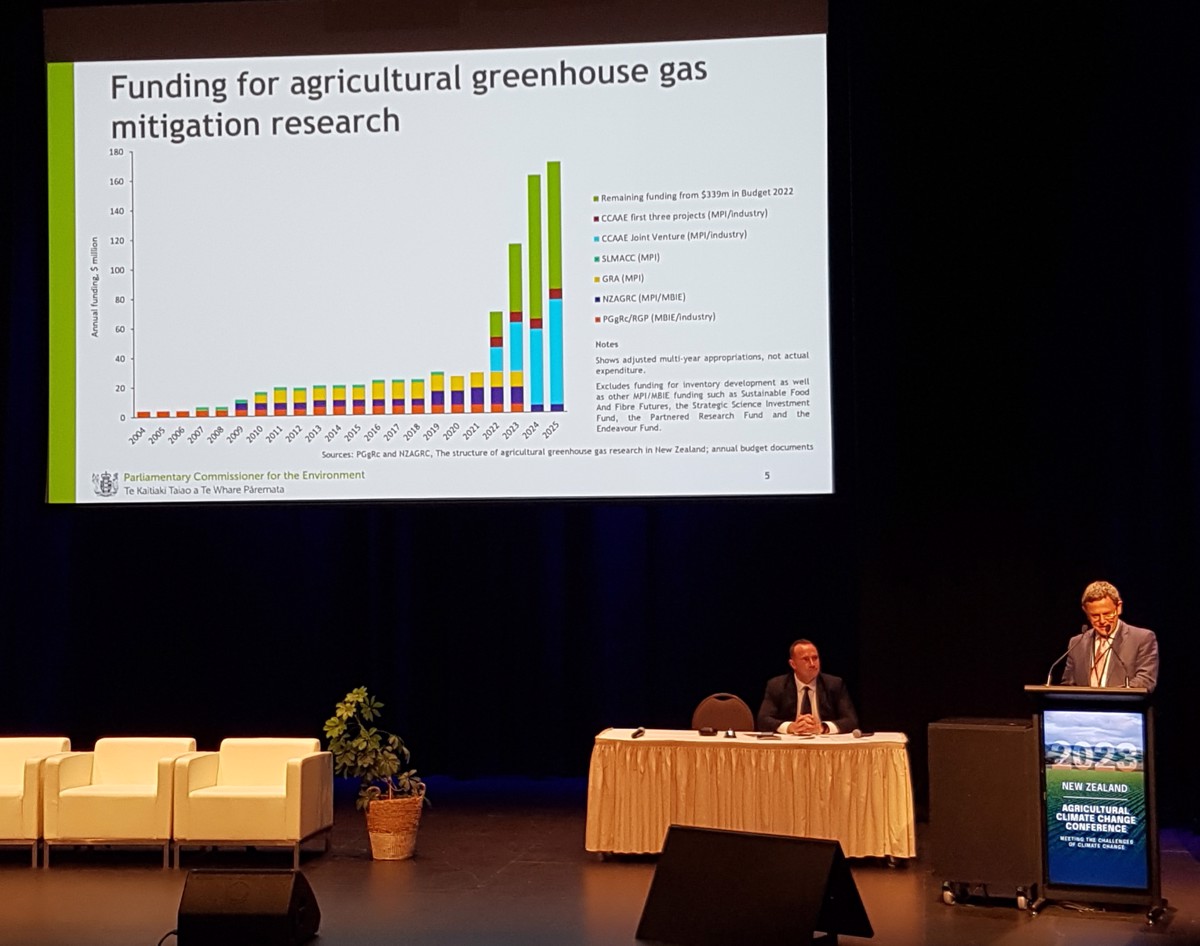Address at the New Zealand Agricultural Climate Change Conference 2023
On 1 March, the Commissioner gave an address at the New Zealand Agricultural Climate Change Conference 2023 at Te Papa in Wellington.
The speech focused on the scale of the challenge facing livestock farmers as they attempt to meet the legislated target to reduce biogenic methane emissions by 10% by 2030 and 24–47% by 2050, relative to the 2017 level.
The Commissioner detailed some of the findings from his note on how much forestry would be needed to offset warming from agricultural methane.
The Commissioner also spoke about how reductions in emissions from livestock can be achieved through a combination of two strategies:
- Reducing livestock numbers, through lower stocking rates per hectare and land use change.
- Reducing emissions per animal, through changes in management practices and the uptake of new on-farm mitigation technologies as they become available.
Even in the absence of a price on biological emissions, New Zealand is already seeing land use change driven by an insatiable demand for carbon offsets as the New Zealand Emissions Trading Scheme price rises.
“As many of you know, I have expressed grave doubts about our reliance on forestry offsets as a way of meeting emissions targets for fossil carbon dioxide. We should wean ourselves off this option,” the Commissioner said.
“On the other hand, I have suggested that using whatever forestry stock we generate to offset the warming caused by our agricultural emissions might be more justifiable.”
However, the number of trees needed to offset the warming from a given herd of animals is not small, and it could only ever be part of the solution.
In terms of reducing emissions per animal, changes to existing management practices may be able to deliver emissions reductions of up to 10% in the dairy sector. Fewer options are currently available for changing management practices on sheep and beef farms.
Promising new mitigation technologies are in the pipeline. The Commissioner supports the Government's large recent investment accelerating this research. This investment needs to be sustained long enough to know if these technologies will work and if there are additional mitigation options available. Any benefits these solutions provide should be quantified in terms of reduced warming.
Without new on-farm mitigation technologies, the existing management practices or planting alone will not be enough to reach the legislated methane reduction targets by 2050. If no technical fixes are found, the only way to meet the targets will be through very large reductions in stocking rates.
*Please note there was an error regarding the magnitude of warming from future emissions of nitrous oxide in the Powerpoint slides that the Commissioner displayed at the conference. This error has been corrected in the version available here.


